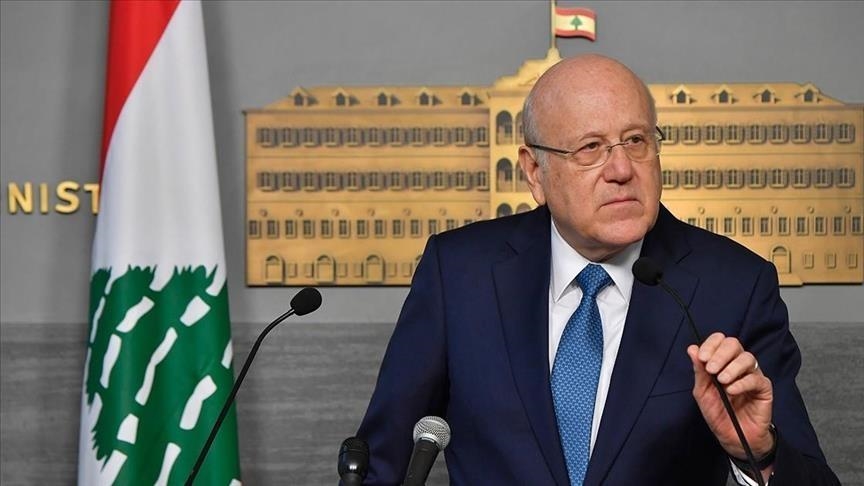
Lebanon and Israel might be able to reach a peace deal within days, says the prime minister of Lebanon
As Israel’s official radio released what it said was a draft agreement allowing for an initial 60-day truce, Lebanon’s prime minister expressed optimism that a ceasefire agreement with Israel will be revealed within days.
According to the memo, which broadcaster Kan said was a Washington-written proposal that had been leaked, Israel would remove its troops from Lebanon within the first week of the 60-day truce. It mostly matched information that Reuters had previously published from two people with knowledge of the situation.
After Tuesday’s U.S. presidential election, Lebanese interim Prime Minister Najib Mikati stated he had not thought an agreement would be achievable. However, he said that after talking with Amos Hochstein, the U.S. ambassador for the Middle East, on Wednesday—who was scheduled to visit Israel on Thursday—he grew more hopeful.
Mikati told Lebanon’s Al Jadeed television that “Hochstein, during his call with me, suggested to me that we could reach an agreement before the end of the month and before Nov. 5th.”
“We are doing everything we can and we should remain optimistic that in the coming hours or days, we will have a ceasefire,” Mikati stated.
The date of Kan’s released draft was Saturday. White House national security spokesperson Sean Savett responded to a question by saying: “A lot of drafts and reports are in circulation. They don’t accurately represent how discussions are going right now.
However, Savett did not answer when asked if the Kan version served as the starting point for more discussions.
Israel’s authorities were seen the document, according to the Israeli network. Israeli authorities refrained from commenting right away.
Since Hezbollah attacked Israeli targets in Gaza in support of its allies Hamas, Israel and the Lebanese armed organization have been engaged in combat alongside Israel’s war in Gaza for the last year.
The Lebanese health ministry has documented 2,800 deaths over the previous 12 months, the majority of which have occurred within the last five weeks as the fighting in Lebanon has drastically intensified.
Hezbollah did not immediately respond to the request for a truce that was leaked.
Naim Qassem, the organization’s new head, stated earlier Wednesday that if Israel wanted to end the war, the Iran-backed armed group would accept a ceasefire under specific conditions. However, he added that Israel has not yet accepted any plan that could be addressed.
Qassem gave his first address as secretary-general the day after Hezbollah declared that he had been elected to the position following the assassination of Hassan Nasrallah, the group’s longstanding leader, by Israel.
A historic city is struck by Israel.
The Israeli army unleashed strong bombings on the eastern city of Baalbek, known for its Roman temples, and neighboring towns on Wednesday, according to security sources who spoke to Reuters, as part of Israel’s ongoing campaign against highly armed Hezbollah in Lebanon.
Following an Israeli evacuation notice, tens of thousands of Lebanese left, many of whom had come from neighboring places to seek refuge in Baalbek.
The scene was chaotic, according to Bilal Raad, regional leader of the Lebanese civil defense. Prior to the onslaught, he said, “There is a huge traffic jam, and the entire city is in a panic trying to figure out where to go.”
According to Lebanon’s health ministry, Israeli bombings on two villages in the Baalbek region on Wednesday claimed 19 lives.
It stated that since October 2023, Israel’s military intervention in Lebanon had claimed 2,822 lives. The number of displaced persons has exceeded 1.2 million.
The Israeli military claimed to have targeted Hezbollah fuel reservoirs in the Bekaa Valley area after the bombings.
The U.S. State Department reaffirmed Wednesday that Washington backs Israel’s right to attack legitimate Hezbollah targets in Lebanon in response to a query on Israel’s assault of Baalbek. However, it stated that Israel must take care to avoid endangering people, vital civilian infrastructure, or important places of cultural value.
Hezbollah claimed fierce combat with Israeli soldiers in or near the southern town of Khiyam for the third day in a row. This is the deepest Israel’s troops are said to have infiltrated Lebanon since hostilities intensified five weeks ago.
Hezbollah also claimed to have fired missiles toward a military installation in Israel southeast of Tel Aviv.
PERMANENT CEASEFIRE PLAN
Hochstein and Brett McGurk, a U.S. security officer, will go to Israel on Thursday, according to the White House. “Including Gaza, Lebanon, hostages, Iran and broader regional matters” was one of the topics that a U.S. official had stated they would be discussing while there.
The Israeli network’s draft plan, which asked for a permanent truce to be implemented following the initial 60-day period based on the execution of United Nations resolutions 1701 and 1559, was not reacted to by the prime minister of Lebanon.
According to Mikati, Lebanon was prepared to completely execute Law 1701, which was issued in 2006 and established a U.N. peacekeeping force in the region as well as commanded the demilitarization of southern Lebanon.
Hochstein told reporters in Beirut earlier this month that since neither Israel nor Lebanon had completely followed the 18-year-old pact, better enforcement tools were required. The text, which was leaked on Wednesday, calls for the establishment of an impartial, global agreement to supervise the ceasefire.
All militias in Lebanon were to be disbanded and disarmed, according to Resolution 1559, which was enacted in 2004.
The diplomatic effort to put an end to hostilities in Gaza is concurrent with the campaign for a ceasefire in Lebanon.
All Categories
Recent Posts
Tags
+13162306000
zoneyetu@yahoo.com



